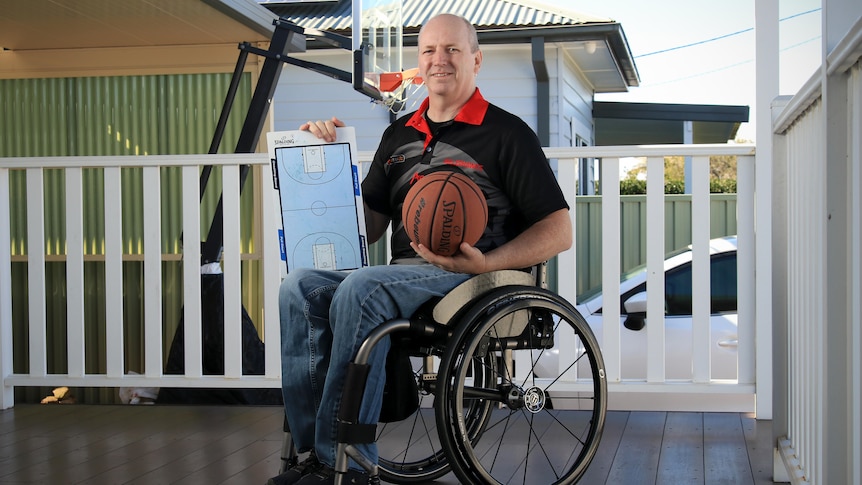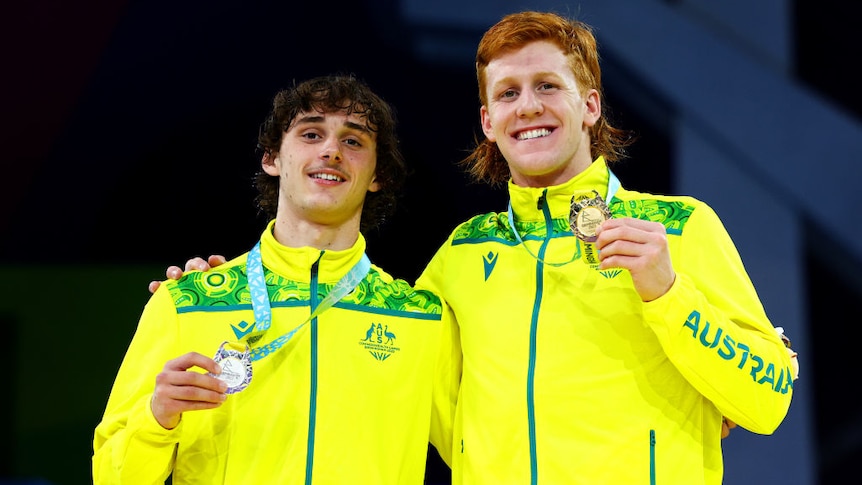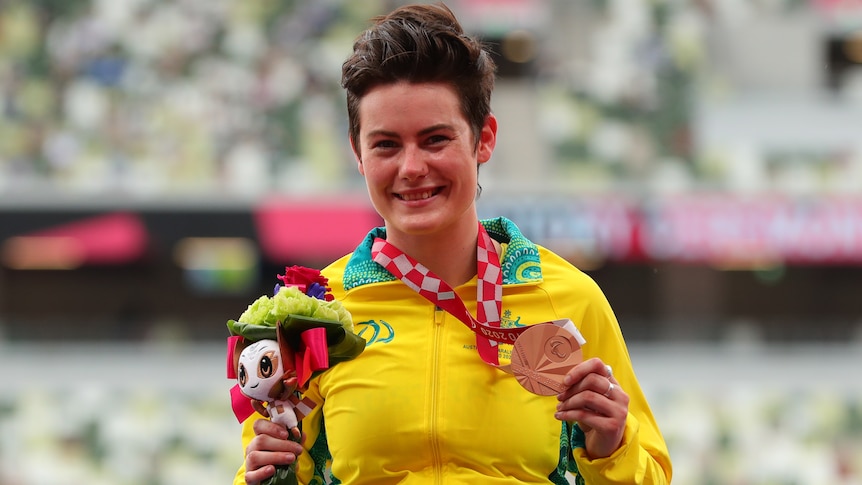Wollongong Roller Hawks coach Brendan Dowler may be surprised to hear his city called a powerhouse in wheelchair basketball, but the team’s results tell a clear story.
His team has been crowned national champions in 2003, 2011, 2012, 2017, 2018, 2019 and 2022.
Downler is a two-time Paralympian, captain Brett Stibners is a four-time Paralympian and point guard Luke Pople has just won a gold medal at the Commonwealth Games for 3×3 wheelchair basketball.
“To hear Wollongong referred to as a powerhouse is strange in some ways, because we are a regional city, but we’re proud of the achievements we’ve been able to provide to players, the community and supporters,” Dowler said.
“We should be proud of that achievement as a smaller city in Australia.”
The club is now flush with players who have succeeded on the international stage, but it a;; began with two men who were sick of traveling to Sydney to train and play.
Humble beginnings, bold recruiting
Dowler and Roller Hawks co-founder Eino Okonnen were keen wheelchair basketball players in the late 1990s.
“We were playing for Sydney teams because there were no teams down here and we were traveling up to Sydney multiple times a week,” Dowler said.
They decided to start their own team, but they needed a star player.
As well as being a talented wheelchair basketball player, Okonnen is famous for his bold approach to recruiting and headhunting players.
His first move was to recruit Canadian Joey Johnson, who had just won a gold medal for wheelchair basketball at the 2000 Sydney Paralympics.
“I met him and asked him to play for us — he was one of the best players in the world at the time and he said OK,” Okonnen said.
“He showed up and taught us how to play.”
The Roller Hawks entered the National Wheelchair Basketball League in 2001 and won their first title two years later.
“I still recruit players, but fortunately other people do too, and the team itself encourages players to come and play with us,” Okonnen said.
He said after people saw a game they realized the sport was more physical and fast-paced than they may have thought.
“It’s not people playing in hospital chairs — they’re playing in F1 cars and you’d be amazed what people can do in a wheelchair.”
‘Never looked back’
Okonnen’s persuasive nature saw him recruit club captain Brett Stibners after he lost his left leg after a car accident.
“I found out where he lived, introduced myself and on the first meeting he said, ‘Go away, I’m not interested,'” Okonnen said.
“I gave him more time and went back again and it was the same story.
“Then his mum and dad took him to see a game and once he saw a game he’s never looked back.”
Dowler said proactive recruitment had been a hallmark of the Wollongong Roller Hawks.
“I’m not as up front as Eino,” he said.
“He’ll accost people in the car park at the supermarket.”
Smaller market advantages
Wollongong has a population of about 220,000 and Dowler said being a regional hub had its advantages over larger cities.
“There’s not one reason for our success, but we have a great association and basketball is strong in Wollongong with the Hawks at the NBL level,” he said.
“We’ve had a great committee over the years, but we’ve also had support from councillors, politicians, businesses and the media, as well as a great bunch of people.
“Being in a regional city is an advantage over Sydney and Melbourne because we’re a tight-knit team and can hang out together and train more easily than the bigger cities can.”
.


